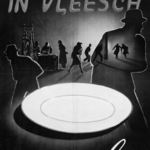‘Alles is van ons’. Anonieme brieven over de voedselvoorziening in Nederland tijdens de Tweede Wereldoorlog
DOI:
https://doi.org/10.18352/bmgn-lchr.7379Keywords:
Second World War,Abstract
‘Everything is Ours’: Anonymous Letters concerning the Food Supply in the Netherlands during World War II
The input of the Dutch population in the formation of food policy in the Netherlands during World War II is often unduly neglected. People did not simply undergo policies from above, but actively tried to exert influence on these. Writing anonymous letters was one of the strategies used to this end. A corpus of anonymous letters sent between 1940 and 1944 to the head of the Dutch rationing authority offers rare alternative access to the moral codes and perceptions of the food issue at grass-roots level in the occupied Netherlands before the Hunger Winter. The analysis of this corpus of anonymous letters confirms the existence of a strong anti-German Dutch consumer identity, but also goes to reveal a socially more complex image of the moral perceptions of the food issue in the occupied Netherlands. The letters show that the food issue gave birth to social tensions earlier than has generally been assumed. The image of anti-German unity masks a great deal of social division. Various social groups held different views on the food issue. The perceptions of these groups may have been diverse, but they all shared a preoccupation with equality.
Downloads

Downloads
Published
Issue
Section
License
Authors who publish with this journal agree to the following terms:
a) Authors retain copyright and grant the journal right of first publication with the work simultaneously licensed under a Creative Commons Attribution 4.0 International (CC BY 4.0) that allows others to share the work with an acknowledgement of the work's authorship and initial publication in this journal.
b) Authors are able to enter into separate, additional contractual arrangements for the non-exclusive distribution of the journal's published version of the work (e.g., post it to an institutional repository or publish it in a book), with an acknowledgement of its initial publication in this journal.
c) Authors are permitted to post their work online (e.g., in institutional repositories or on their website) prior to and during the submission process.
Authors are explicitly encouraged to deposit their published article in their institutional repository.








